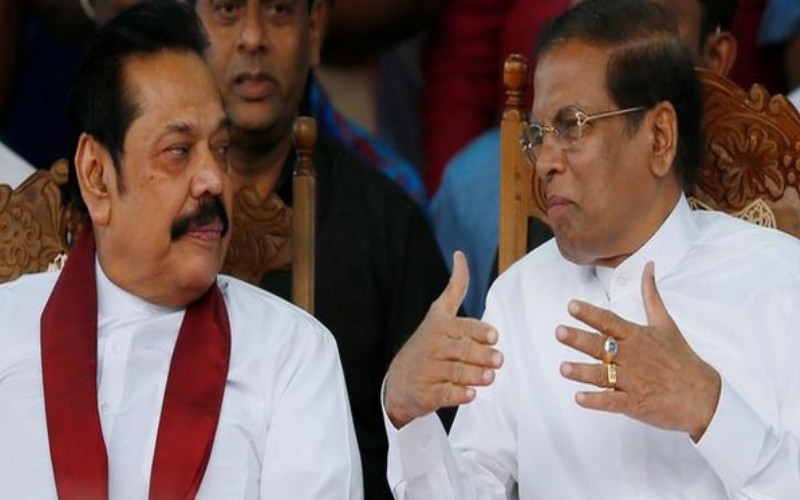Colombo: President Maithripala Sirisena on Monday said in the Parliament that a no-confidence motion in the House should be held electronically or a division by name in order to resolve the ongoing political crisis in the island nation.
The Daily Mirror Sri Lanka quoted him saying that it was a system acceptable to the general public and the international community at large and that a voice vote was not transparent although Standing Orders provided for it.
The President also requested all political parties to strike a compromise and act with some understanding. To avoid further clashes that could not disrupt the Parliament sessions any further, Sirisena also asked all the parties not to bring huge crowds along with them to hold protests near the Parliament.
At an all-party meeting held on Monday, before the beginning of the Parliament session, the President said that a vote on voice cannot be considered appropriate when it comes to an important matter like changing a government, the Colombo Page reported.
Deputy Speaker Ananda Kumarasiri chaired the session on Monday at 1 pm, which ended within 10 minutes.
The United National Party of Sri Lanka took to Twitter on Monday evening, saying, “Once again the UPFA members refused to show their numbers through a vote by name. The illegal Prime Minister and the government are clinging onto power by refusing to allow Parliament to conduct its business.”
On Friday [November 16], the Parliamentary sessions were marred by violence for the third consecutive day with the ministers forcibly occupying the Speaker’s chair and delaying the day’s business.
The Sri Lankan President on Sunday also called for an all-party meeting at his office. But the meeting concluded without arriving at any solution to the ongoing Parliamentary crisis in the country.
The political turmoil in Sri Lanka turned topsy-turvy when Mahinda Rajapaksa was defeated in the Parliament during a ‘No-confidence’ motion on November 15. The no-confidence motion against Rajapaksa was passed after 122 members voted against him in the 225-member House.
In an unusual turn of events, the Parliament became a virtual war-zone, when the legislators got into fistfights, hurled objects at each other and even tried to attack Speaker Karu Jayasuriya following Rajapaksa’s loss in the trust vote.
[source_without_link]ANI[/source_without_link]

